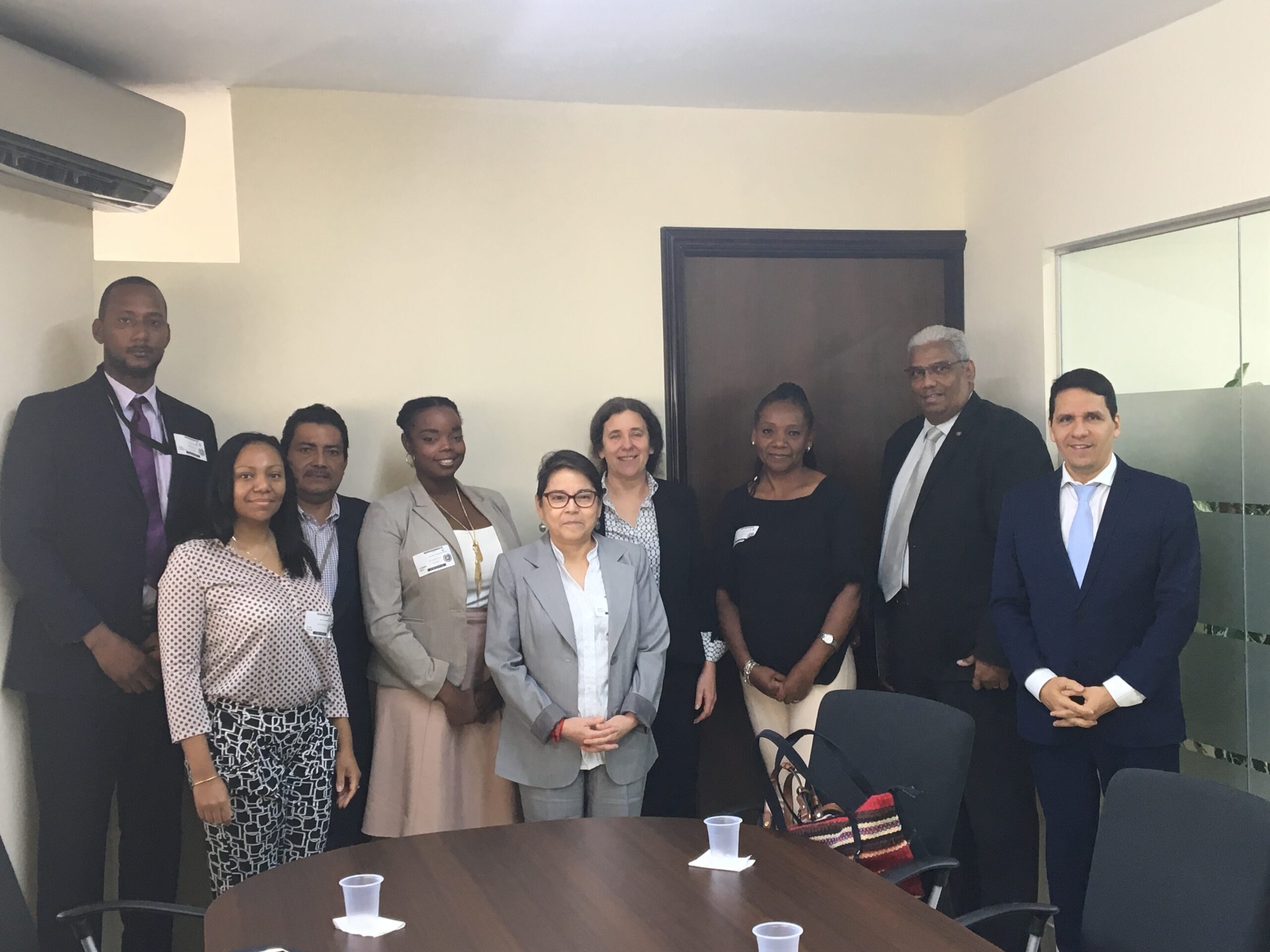Empowering the Afro-Panamanian Population to Increase their Participation in the 2020 Census
Washington, D.C., February 2, 2018. On January 29, 2018, The Institute on Race, Equality and Human Rights (Race and Equality) officially commenced a series of activities to support the work of Afro-Panamanian activists in their efforts to develop an adequate self-identification question and an effective participation during the entire census process, which is already underway […]

Washington, D.C., February 2, 2018. On January 29, 2018, The Institute on Race, Equality and Human Rights (Race and Equality) officially commenced a series of activities to support the work of Afro-Panamanian activists in their efforts to develop an adequate self-identification question and an effective participation during the entire census process, which is already underway for 2020.
With the help of the National Secretariat for Afro-Panamanian Progress (SENADAP, for its initials in Spanish) and the United States Embassy in Panama, Race and Equality carried out the first workshop in its project, called “Strengthening the Knowledge of Afro-Panamanian Activists, 2020 Census” in the United Nations facilities in Panama City, Panama. The workshop included the participation of Urenna Best, Director of SENADAP and Roboán Gonzalez, Coordinator of the 2020 Census from the National Institute of Statistics and Census (INEC, for its initials in Spanish). The workshop also included international guests from Peru; Nancy Hidalgo, the Technical Director of Demographics and Social Indicators at National Institute for Statistics and Informatics (INEI, for its initials in Spanish) and Cecilia Ramirez from the Black Women’s Development Center (CEDEMUNEP, for its initials in Spanish). Additionally, Peter Hamm participated representing the United States Embassy, and our own Elvia Duque, Latin America Program Officer at Race and Equality, participated as well. The goal of this exercise was to empower members of the Technical Team of the 2020 Census to promote the importance of including a racial/ethnic self-identification question to improve their interlocutory work between government entities and their communities.
The activities carried out during the workshop allowed participants to gain a deeper understanding of the necessary organizational and technical aspects for the current census cycle to yield relevant information regarding the current situation of Afro-Panamanians; What is their population numbers, their characteristics, and what living conditions they currently face. This information will be crucial in developing and implementing public policies that address the situation of structural exclusion still plaguing the Afro-Panamanian community. Among the most noteworthy topics discussed were:
- Past Census’ limitations in identifying Afro-Panamanians. Roboán Gonzalez of INEC highlighted the methodology that the Panamanian government used in the formation of the racial/ethnic self-identification question used in the 2010 Census, and the concepts used to generate official statistical data on the Afro-Panamanian population. Participating activists were able to note existing challenges that Afro-Panamanians faced in utilizing the previous census’ identification categories. Terms such as “colonial black” and “Antillean black” created confusion among the Afro-Panamanian population, which resulted in vast underrepresentation. “Afro-Panamanian” accounted for only 9% of the total population, a number very far from reality.
- Lessons learned from the 2017 Peruvian Census. As part of a shared experience, representatives from INEI and CEDEMUNEP in Peru shared relevant insight about the recent 2017 Census in Peru, which included a racial/ethnic self-identification question for the first time. In analyzing the process, it was found that communities are more responsive to the use of common descriptors as opposed to those used by academics and professionals. Furthermore, they stressed that the census should not be seen as the work of just one day, but rather a broad process that needs the joint collaboration of government representatives and the Afro-descendant community. It’s crucial to guarantee visibility and thereby important to encourage the participation of Afro-Panamanian communities in spaces of dialogue with government representatives.
- The Importance of strengthening Afro-Panamanian participation to improve upon the experience of the 2010 Census. SENADAP director Urenna Best urged those present to have a more active role within their communities and on the Census Technical Team to reflect the needs of the Afro-Panamanian population. To achieve this, the support given by international cooperation agencies is paramount.
- Implications that the 2020 Census results will have in addressing Afro-Panamanians’ situation of structural exclusion. Elvia Duque of Race and Equality emphasized to the participants that censuses and the collection of official statistical data through an adequate self-identification question will be crucial to ensure the creation of public policies that reduce inequality. Adopting this perspective represents progress in the commitments and social demands adopted by States at the World Conference Against Racism in Durban 2001.
The activists who attended the workshop expressed the need to continue this type of training to continue strengthening their knowledge on the subject and enriching their discussions. Additionally, they affirmed that is it imperative to expand participation to include other Panamanian organizations and communities, particularly those with significant Afro-descendant presence, like Colón and Darién.
With the continued support of the US Embassy in Panama, Race and Equality will continue to carry out activities that will contribute towards the effective participation of Afro-Panamanians in the 2020 Census.

